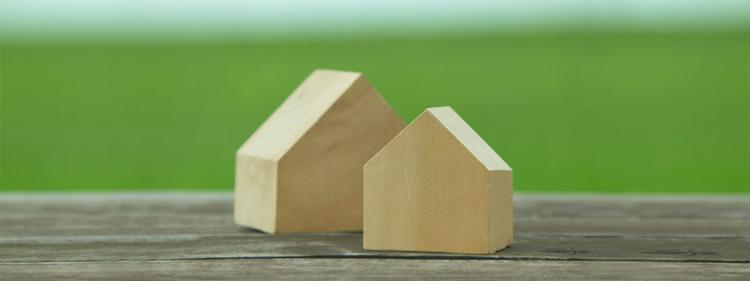How to Buy a House When You Already Own One

Whether you are looking at purchasing a second home for investment purposes, as a permanent vacation destination, or as housing for an aging parent or grandparent, owning more than one home presents its own set of unique challenges and concerns.
Some people own more than one home because they are waiting for housing prices to recover before putting their old residence on the market. Whatever your reasons, there is help in navigating these unknown waters. Just make sure you're covered with an affordable home insurance policy.
Life Changes
Sometimes, families outgrow their primary residence, and need a bigger home. On the flip side, empty nesters and retirees sometimes look for a smaller home, but don't want to lose their primary home. If your individual situation lends itself to needing a smaller or larger home based on life changes, be sure to weigh the need for space vs. costs. Decide which rooms you need, and which rooms you can do without.
Each room in the house will consume utilities, so make sure to consider that cost when coming up with a budget. Those looking to decrease their space might want to consider a condo, townhome or apartment. These types of residences offer the convenience of privacy and space, with the perks of landscaping, security and maintenance.
Purchasing a townhome or a condo gives you the benefit of a set mortgage payment, while the rent for the non owned units rises. Additionally, some families purchase an additional home to help with the care of a loved one. If this situation applies to you, be sure to budget out the cost of care in a facility vs. the cost of care in a home.
If you do not plan on keeping both residences, you need to decide if you should sell your first home before taking on a second mortgage, or if you can afford to pay the loans on both.
Vacation Homes
Vacation home purchases are on the rise. Home owners who take vacations may get tired of paying the equivalent of a mortgage payment for a week's vacation. If you do not plan to use the home very often, you may want to consider renting it out to other vacation-bound families throughout the year, which may help the home pay for itself.
Many popular vacation spots are prime locales for natural disasters like hurricanes or earthquakes, so be sure that you have sufficient coverage for events like these. Many other properties are located near lakes or rivers, which has an impact on the amount of property taxes you will pay and the rates you'll find for insurance coverage.
Also keep in mind that insurance and property taxes on vacation homes will be more expensive than those for your primary residence, as a property that is only inhabited a few times during the year faces increased risks for damage.
Investment Property
Real estate is one of the most popular investment vehicles of our day. Those who can afford to own multiple properties enjoy long-term financial benefits and the added value of future appreciation. The real estate business is a hard market to tap into. However, with forethought, fiscal responsibility and financial planning, you can start down the road to owning more than one home.
Before you jump headfirst into the landlord business, however, you should familiarize yourself with any landlord/tenant laws governing your area and consider how involved you want to become. You may want to hire a property management company that can vet your renters, maintain the property and handle tenant complaints.
Also keep in mind that a landlord insurance policy is typically 25 percent more than a basic homeowners insurance policy. Most landlords factor that additional expense into the rent they charge their tenants.
Know Your Market
Just like knowing the future value of artwork and antiques, it's important to know the future value of the market you're considering in addition to the market in which you already own real estate. There are many real estate market trend reports you can view online, which will give you good key indicators on what to expect in the real estate markets you're considering.
Another useful tip is to contact the locals in the neighborhood, and ask about any future developments of which they may be aware. A homeowners association or permit office should also be able to share this information with you.
Additionally, look at any sales in the area to see if there are any trends the reports may be missing. These reports may not be updated to reflect current data. Make an excel spreadsheet with homes for sale, home details, asking price, and selling price. Keep track of these to get a good idea of what the yearly appreciation will be in the area.
Visit the neighborhood, and pay careful attention to any ongoing construction, foreclosure notices, commercial developments, schools, etc. Development is always good for a neighborhood, however, too much development too quickly can negatively impact a market.
Securing a Loan
When you find the home that you believe will be the best investment for your family, and you've calculated the risks and see an upswing in the market, you'll need to secure financing in order to make the down payment, unless you take out a home equity loan to cover the down payment. You may pay .5 to 1 point above the average prime rate for the loan, however, the interest is deductible up to $100,000.
There are other loans you can get as well, such as a bridge loan or gap financing. While these loans may be hard to find, and expensive, some real estate investors do use these. Basically, you're able to secure finances for a down payment based on the amount of equity on the home you already own. These types of loans, however, are not a good fit for everyone, and should be understood before signing on the bottom line.
Special Considerations
When you are purchasing a second home, it is crucial to remember that your homeowners insurance, liability insurance, mortgage insurance, or landlord insurance needs will be different from those you are accustomed for your primary residence.
Knowledgeable, independent insurance agents are always available to answer your questions, suggest coverage options best suited for your second home needs and purposes, and even assist you in filing a claim. Owning a second home can be exciting, but the additional expenses and insurance needs can be confusing. You don't need to go it alone.
